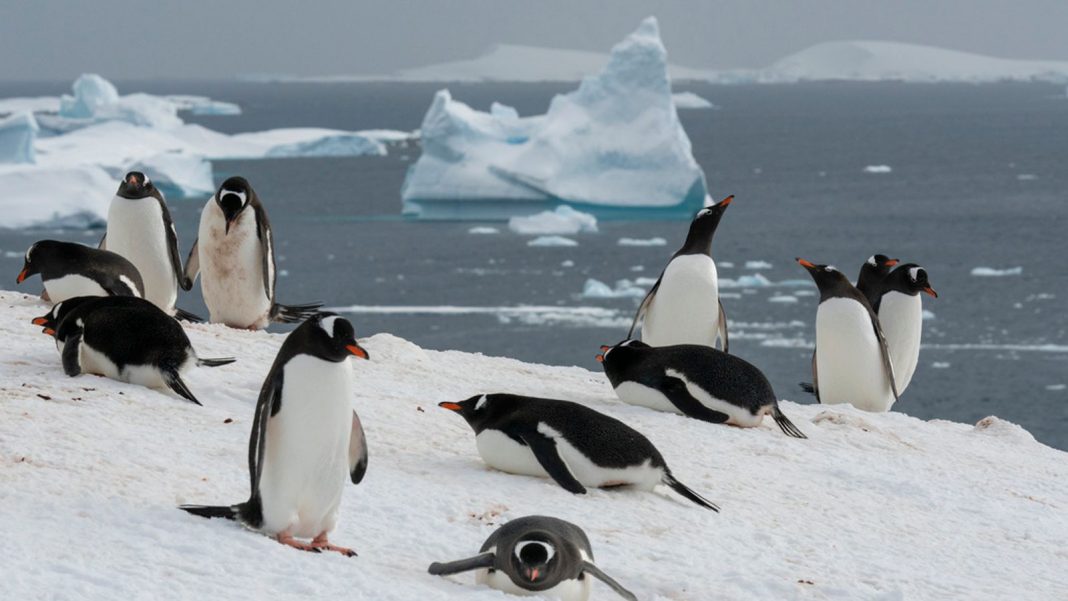Winter sea ice has reached an “extreme” record low in Antarctica – raising fears about the impact of climate change on the region and how it could have consequences for the rest of the world.
The US National Snow And Ice Data Center (NSIDC) said its preliminary figures show the lowest winter maximum since satellite records began in 1979 – and how there was one million sq km (386,102 sq m) less ice than the previous record set in 1986.
“It’s not just a record-breaking year, it’s an extreme record-breaking year,” said NSIDC senior scientist Walt Meier.
It is the latest in a string of records to have recently been broken in Antarctica.
Researchers warned such changes will accelerate global warming by reducing how much sunlight is reflected by white ice back into space.
The shift will also have dire consequences for many Antarctica animals, such as penguins who breed and rear their young on the ice.
Seasons are reversed in the southern hemisphere – Antarctica’s sea ice normally peaks in September at the end of winter before melting to its lowest point in February or March as the continent’s summer draws to a close.
The ice peaked this year on 10 September when it covered 16.96m sq km (6,548,292 sq miles), the NSIDC said.
The average sea ice maximum between 1981 and 2010 was 18.71m sq km (7,223,971 sq miles), experts added.
The summer Antarctic sea ice extent also hit a record low in February, breaking the previous mark set in 2022.
Please use Chrome browser for a more accessible video player
2:08
‘Antarctica could become Earth’s radiator’
Read more:
Antarctica heatwave linked to climate change
‘Sea ice in Antarctica at record low for June’
The shift in recent years toward record-low conditions has scientists concerned climate change may finally be presenting itself in Antarctic sea ice.
Earlier this month, a study in the journal Communications Earth And Environment found how warming ocean temperatures, driven mainly by human-caused greenhouse gas emissions, has been contributing to the lower sea ice levels recorded since 2016.
Ariaan Purich, a sea ice researcher at Australia’s Monash University, co-authored the study. He said: “The key message here is that to protect these frozen parts of the world that are really important for a whole number of reasons.
“We really need to reduce our greenhouse gas emissions.”







